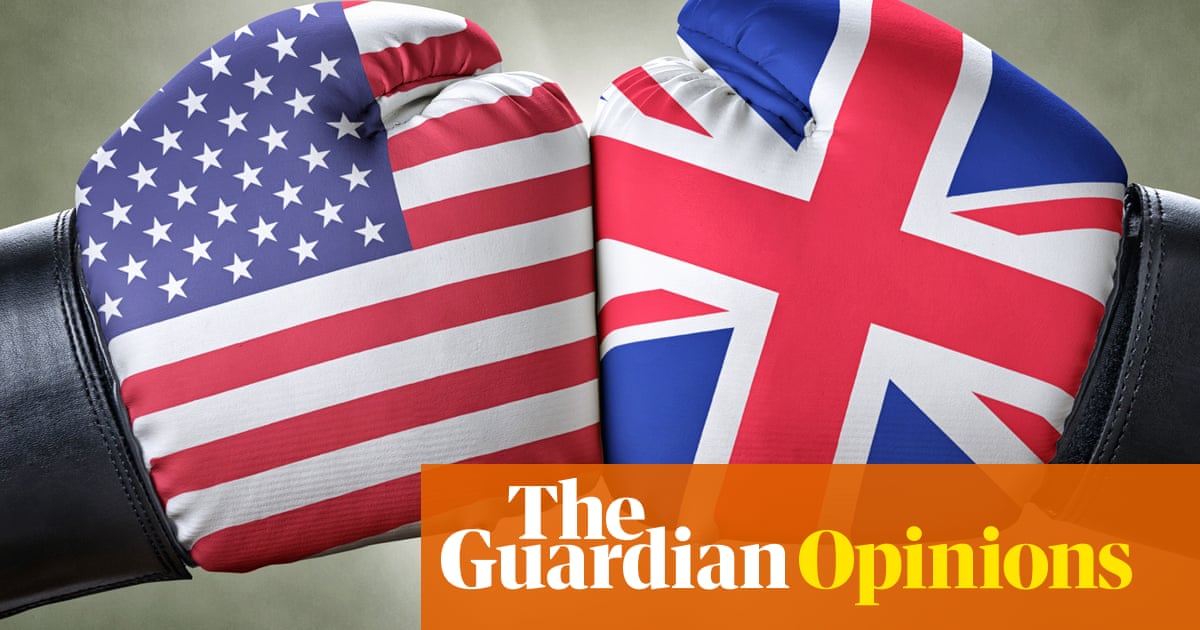Shall we take a brief moment to forget the hellworld outside and focus on something utterly inane? That was a rhetorical question, because you’re coming with me immediately to the far depths of TikTok, where there is a furious argument raging about a hypothetical transatlantic brawl. Riffing on an onlinedebate about whether 100 men or a single gorilla would win in a fight, someone posted a viral video asking: “100 British people v 100 Americans. One big room. No weapons. Who’s winning?”
This article includes content provided byTikTok. We ask for your permission before anything is loaded, as they may be using cookies and other technologies. To view this content,click 'Allow and continue'.
I have not conducted a thorough analysis of the answers, but from my cursory glance it would seem the consensus is the Americans would win. For science’s sake I polled a real-life American (my wife), and her opinion, largely based on the whole 1776 thing, was also that there would be a US victory. “We just care more about winning,” she told me (a Brit). The country certainly has a funny way of showing that right now.
The citizen science doesn’t stop there. To add another data point, I asked ChatGPT its opinion. Alas, ChatGPT also told me it thought Americans had the edge, but it did note Brits have “a high tolerance for physical discomfort”. Which is true. Turn off the air-conditioning, or make them drink room-temperature water or use a crunchyair-dried towel, and the Americans would surrender immediately.
Anyway, I think we should just settle the argument with a real-life match. You know how creepy tech billionaire Peter Thiel wants to set up theEnhanced Games– a drug-friendly Olympics? I think he should scrap that and set up an Unhinged Games, in which random people are called up, jury duty/Hunger Games style, to work through ridiculous thought experiments. Think of all the national pride and unity you could conjure up with events like “Can 100 British football hooligans out-mayhem 100Philadelphia Eagles fans?” or “Can68 million Britsout-drink 330 million Americans in beer?”
Frankly, I think it’s a genius idea. And if you don’t agree, I’m ready to fight.
Arwa Mahdawi is a Guardian columnist
Do you have an opinion on the issues raised in this article? If you would like to submit a response of up to 300 words by email to be considered for publication in ourletterssection, pleaseclick here.
